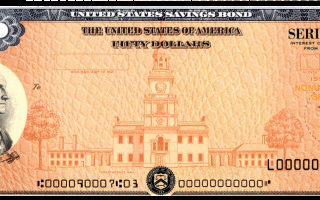
Did you know that you are only allowed to make a certain amount of withdrawals from your savings account every month? More importantly, are you aware of the penalties that you might face if your savings account is tapped above that limit? If you don’t want to pay bank fees, or potentially even lose your savings account, then it’s important to make yourself aware of all of the rules and regulations around accessing your savings account funds. And in the face of COVID-19, there are a lot of changes to stay abreast of.
What is Federal Reserve Board Regulation D?
Chances are that if you aren’t well-versed in the intricacies of finance then you haven’t ever heard of Federal Reserve Board Regulation D. What is it? Well, this regulation limits the number of transactions that you can make from your savings account. In other words, while certain banks might have their own specific rules about this topic, all banks must meet the minimum requirements of Federal Reserve Board Regulation D.
However, this regulation was amended recently.
So, first of all, what is Federal Reserve Board Regulation D? This is a regulation that issues a lot of rules for banks. For example, one of the main rules was that “depository institutions” (banks, credit unions, etc.) must keep a minimum amount of money on hand so that customers can withdraw money from their accounts. The regulation also historically limited savings account transactions to six times per month.
Therefore, you could not transfer money from your savings account more than half a dozen times per month, according to this regulation. Your own bank and specific account might be even stricter. For example, you might have an account that only allows you to withdraw a certain amount from savings without incurring a fee. It might be fewer than six times per month (but because of Federal Reserve Board Regulation D it can’t be more often.)
COVID-19 Changed the Rules of Federal Reserve Board Regulation D
Up until very recently, that was simply the rule. You could withdraw money from your savings account up to six times per month without being in violation of Federal Reserve Board Regulation D. However, there’s a new amendment to the regulation that suspends this limitation. This suspension came about as a result of the financial strain that people are facing due to COVID-19.
Thanks to pressure from banking professionals, The Federal Reserve recognized that this is a tie of economic crisis in America. As a result, they decided to relax many of the rules established by Federal Reserve Board Regulation D. This means that the previous rules don’t currently apply. Therefore, banks can allow you to make as many transactions as you wish right now from your savings account. They do not have to limit your transactions to six per month.
What Happens To Your Savings Account If You Make Many Transactions?
Under the original rules of Federal Reserve Board Regulation D, banks could not allow you to make more than six transactions per month. Therefore, there were consequences if you did. In some cases, the bank would charge you a fee per transaction over that amount. This is typically called an Excessive Withdrawal Fee. In other instances, the bank would change your savings account to a checking account. Therefore, you would no longer earn savings account interest rates on that money.
However, under the new rules, those restrictions don’t apply. Banks no longer have to restrict the number of transactions that you’re allowed to make from your savings account. Therefore, most likely, nothing at all will happen to your account if you make more than 6 transfers from savings this month. That said, you want to check with your bank about their specific rules and regulations. Not only does each bank have its own rules, but many banks offer different types of savings account, so whether or not you can make multiple transactions could depend upon the type of savings account that you have.
Get your FREE trial of Simplifi by Quicken. You work hard for your money. Now let’s make it work hard for you.
Banks Make It Easier to Access Money During Coronavirus Pandemic
Chances are that your bank is going to take advantage of the opportunity to allow you to access your savings account with penalty. Many professional banking organizations have long called for an end to the cap on transactions anyway. Now that Federal Reserve Board Regulation D is suspended, they’ll let you make your withdrawals without penalty. This is just one of many ways that banks are trying to make it easier for you to access your money during the limitations of the Coronavirus Pandemic.
For example, many banks, including Ally Bank, are waiving a wide range of fees. They are waiving the “excessive withdrawal fee” of course since this is no longer a Federal Reserve rule. But that’s not all they are waiving. They are also waiving overdraft fees and fees for expedited checks. Many other banks have made similar changes.
Check With Your Bank to Find Out Current Rules
The most important thing that you can do is to check with your bank to find out about all rules related to fees. Since so much has changed in the face of COVID-19, you need to get the most up-to-date information. Ask your bank representative what changes your account experienced as a result of COVID-19. Ask specifically about reduced or waived fees. Make sure that you double-check the expiration date of those waivers.
For example, Ally Bank’s fee waivers currently run through July 18, 2020. Unless they decide to extend that, fees resume in mid-July. It’s importune to be aware not only of what you can do right now but when that might change again.
To that end, you might also want to set a news alert for Federal Reserve Board Regulation D. After all, this isn’t a permanent change. When the immediate financial strain of COVID-19 passes, The Federal Reserve may lift the suspension. At that time, limitations might once again restrict you to six transactions per month. With the news changing all of the time, this is an area of personal finance that it’s wise to stay abreast of.
Read More:
- Use These Tips to Save Money on Banking Fees
- Should We Worry About the Rollback of Dodd-Frank?
- Bank Failures: 25 Things Everyone With a Bank Account Needs to Know
Kathryn Vercillo is a professional writer who loves to live a balanced life. She appreciates a good work-life balance. She enjoys balance in her relationships and has worked hard to learn how to balance her finances to allow for a balanced life overall. Although she’s only blonde some of the time, she’s always striving for total balance. She’s excited to share what she’s learned with you and to discover more together along the way.






Comments